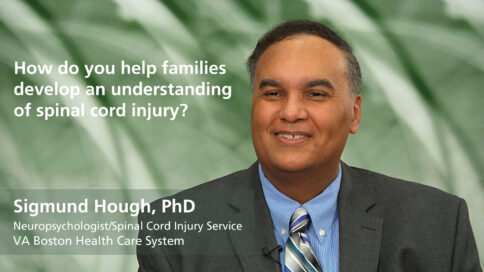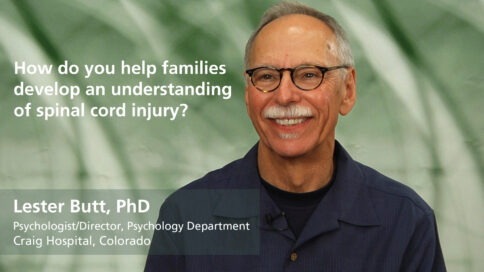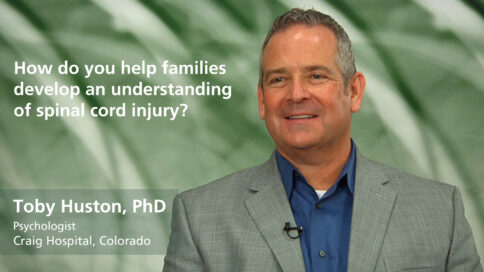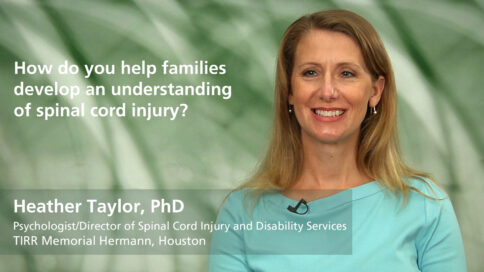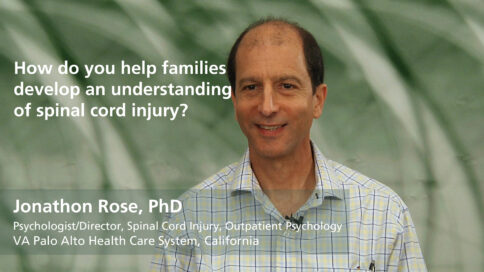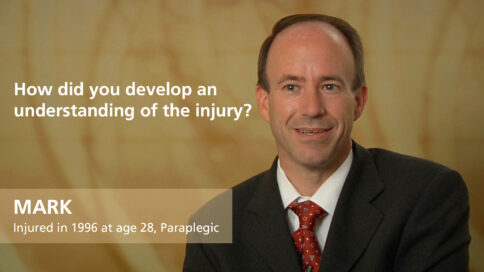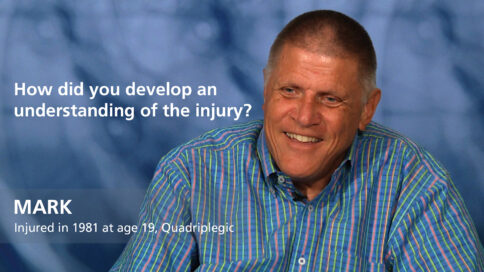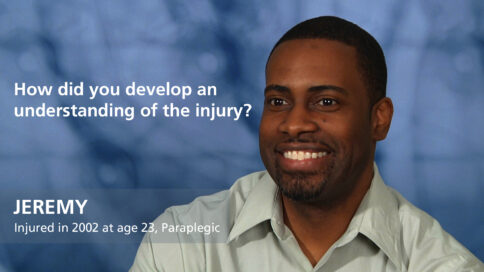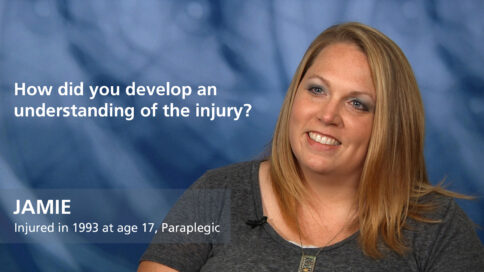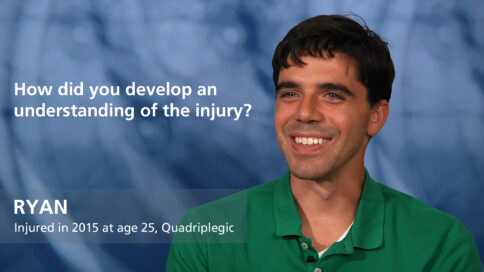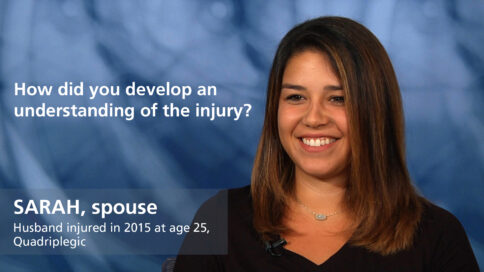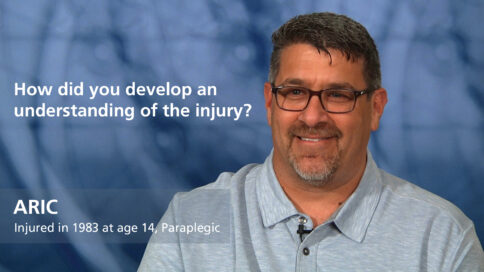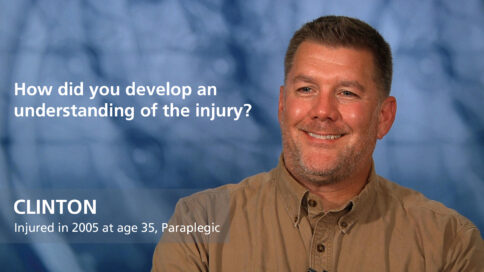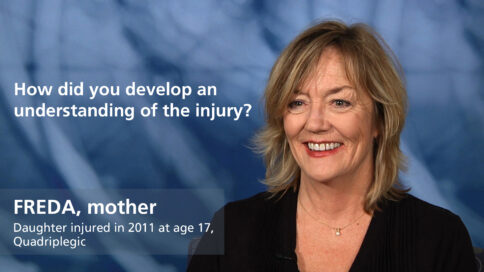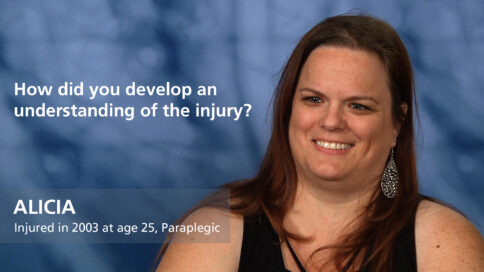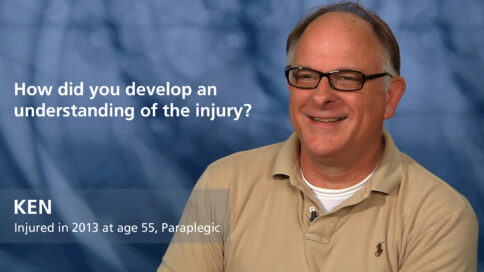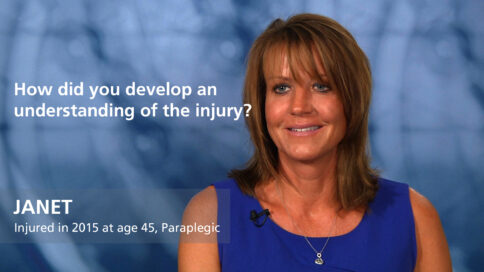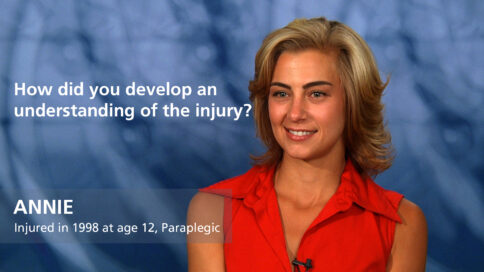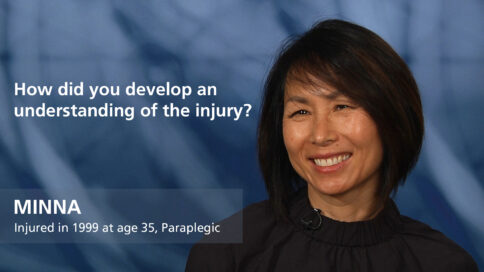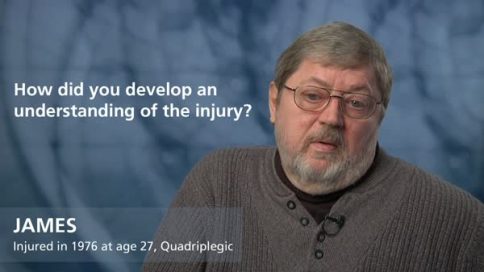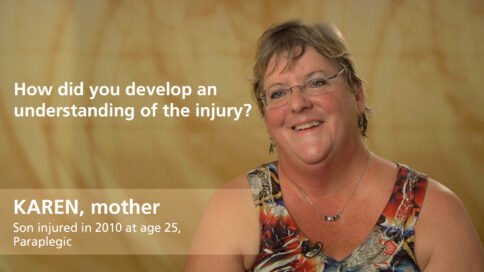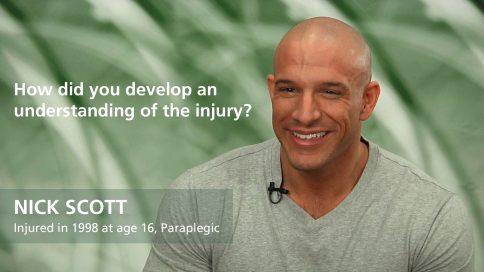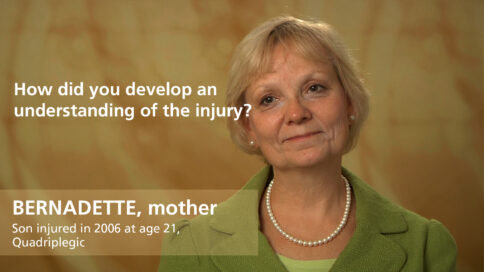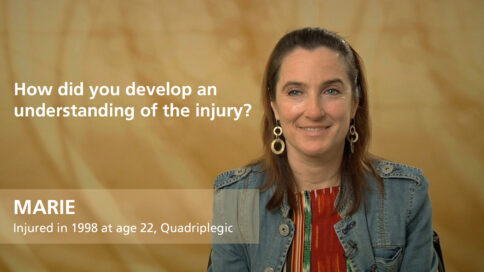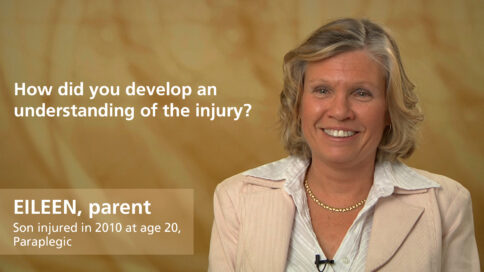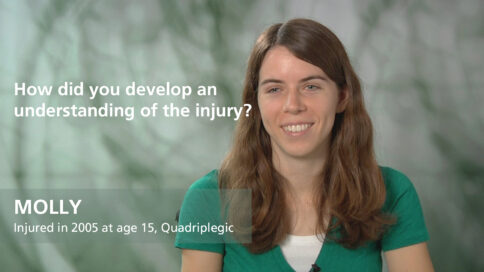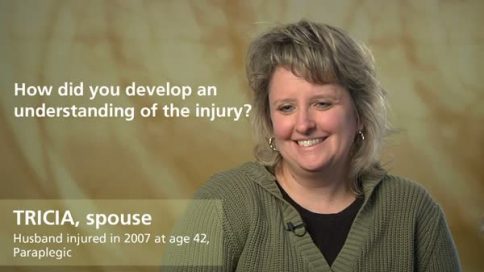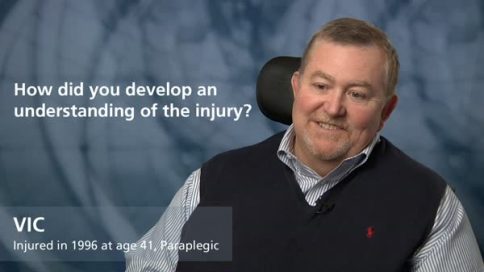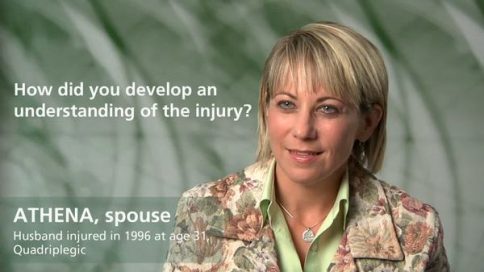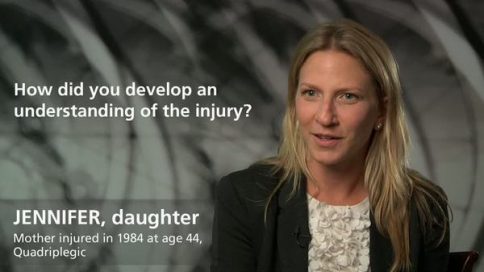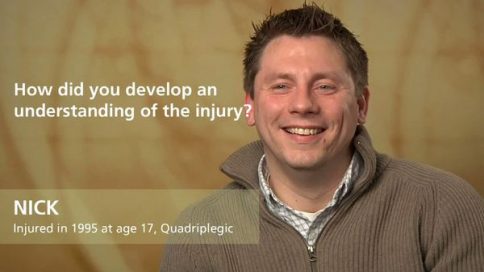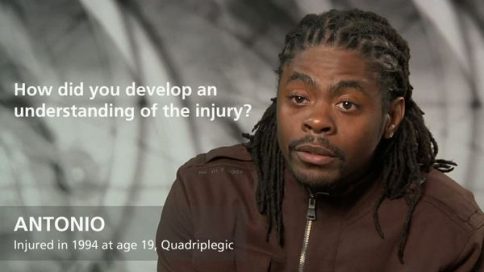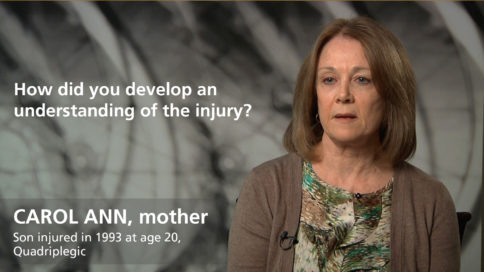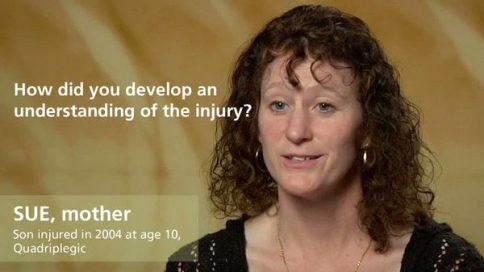How do families usually develop an understanding of a spinal cord injury and what it means? - Nancy Rosenberg, PsyD
|
|
How do families usually develop an understanding of a spinal cord injury and what it means? |
|
Nancy Rosenberg, PsyDPsychology Clinical Specialist and Director, Peer Mentor Programs, Magee Rehabilitation Hospital, Philadelphia |
||
| Read Bio | More Videos by Nancy Rosenberg | |
|
Share |
||
Transcript
I think normally in the acute care settings, before they get to rehab, they see their loved ones in bed. And so the loved one looks sick, and that’s just about it. They look like a normal hospital patient. Then they get into rehab, and they are challenged to get out of the bed, get into a wheelchair, go down to the gym, and look at themselves in the mirror. Family members are looking at them in the wheelchair, being challenged in physical activities, and it starts to dawn on people that, “Wow, this is really something. This is different than I thought it was going to be.” And then, they go into a period of time in rehab where they really feel pumped-up and they feel that things are going to be okay, because they’re seeing some progress. There’s a little bit of progress each day, or maybe each week, they’re seeing something. This gives them hope. Hope is critical by the way, without it, forget it. Then about, I would say, two weeks before discharge, everybody gets incredibly overwhelmed. And they’re thinking, “Oh my God, I need all this equipment, my house isn’t going to look the same, I wonder if this is ever going to get better.” So, there’re all different phases that typical families go through during rehab and beyond. Then once they get home, then things get extenuated again. Because they’re in their own environment, and they’re limited, and it becomes more obvious, because they’re trying to navigate their environment there.
Show Less|
|
||
add
How do families usually develop an understanding of a spinal cord injury and what it means? |
||
Nancy Rosenberg, PsyDPsychology Clinical Specialist and Director, Peer Mentor Programs, Magee Rehabilitation Hospital, Philadelphia |
More Videos by Nancy Rosenberg | |
| Transcriptadd | share | |
I think normally in the acute care settings, before they get to rehab, they see their loved ones in bed. And so the loved one looks sick, and that’s just about it. They look like a normal hospital patient. Then they get into rehab, and they are challenged to get out of the bed, get into a wheelchair, go down to the gym, and look at themselves in the mirror. Family members are looking at them in the wheelchair, being challenged in physical activities, and it starts to dawn on people that, “Wow, this is really something. This is different than I thought it was going to be.” And then, they go into a period of time in rehab where they really feel pumped-up and they feel that things are going to be okay, because they’re seeing some progress. There’s a little bit of progress each day, or maybe each week, they’re seeing something. This gives them hope. Hope is critical by the way, without it, forget it. Then about, I would say, two weeks before discharge, everybody gets incredibly overwhelmed. And they’re thinking, “Oh my God, I need all this equipment, my house isn’t going to look the same, I wonder if this is ever going to get better.” So, there’re all different phases that typical families go through during rehab and beyond. Then once they get home, then things get extenuated again. Because they’re in their own environment, and they’re limited, and it becomes more obvious, because they’re trying to navigate their environment there.
